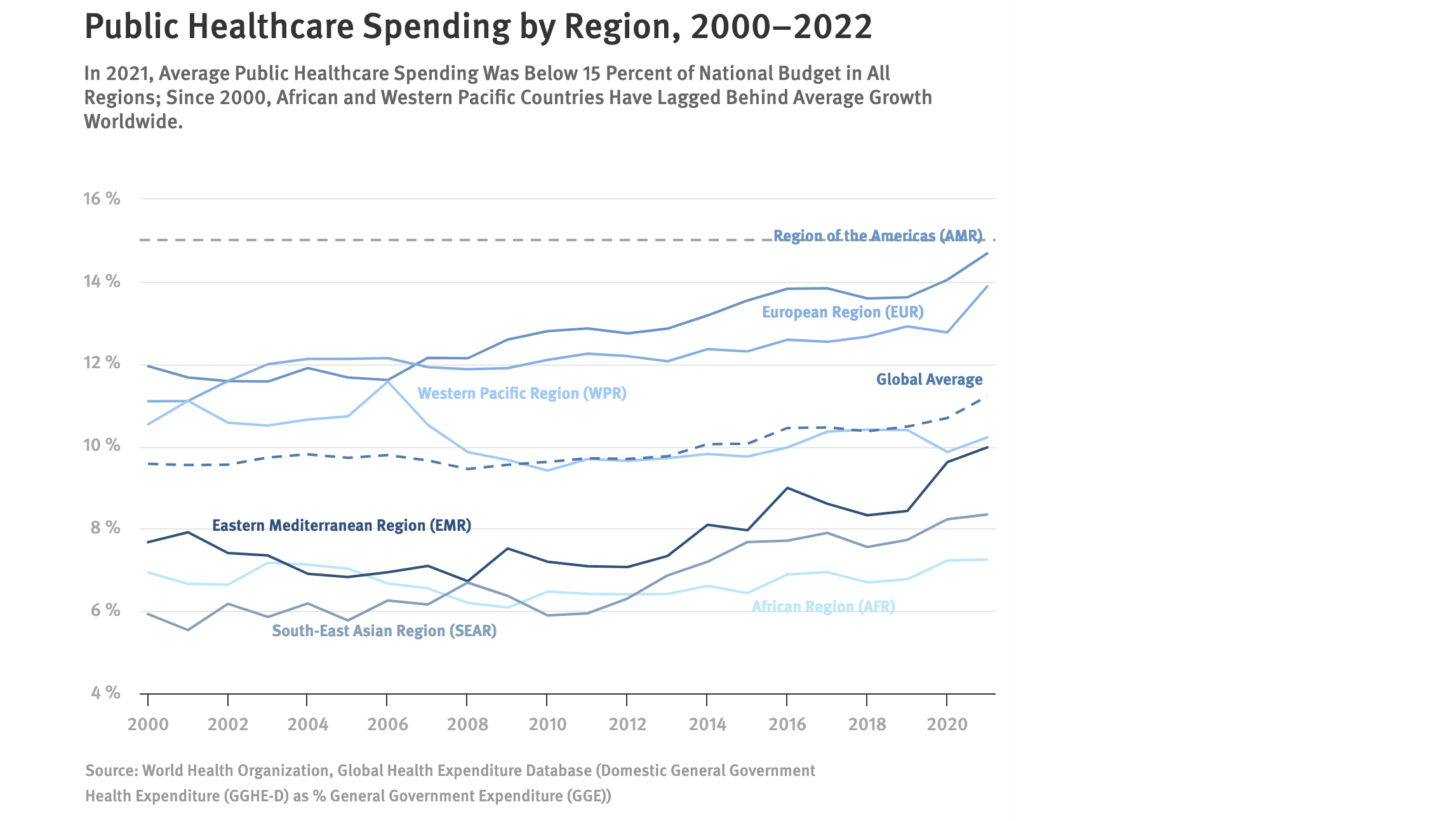African governments are failing to meet their commitments to prioritise public spending on healthcare, leading to significant disparities in healthcare access and outcomes, according to a report by Human Rights Watch and the Kampala-based Initiative for Social and Economic Rights (ISER).
The article highlights that, two decades after the 2001 Abuja Declaration, where African Union (AU) states committed to allocating at least 15% of their national budgets to healthcare, most countries are falling far below this target. In fact, only two of the 55 AU member states—Cabo Verde and South Africa—achieved the 15% goal in 2021.
This shortfall in healthcare spending has contributed to widespread inequalities and a decline in the quality of healthcare systems across the continent. Additionally, nearly 95% of people in Africa live in countries that have not met this spending target, raising concerns about compliance with international human rights obligations, including the right to health. Human Rights Watch and ISER call for renewed efforts by African governments to meet their commitments and urge international support to help African nations create sustainable, equitable healthcare systems.
The article suggests that African governments should re-commit to the 15% healthcare funding target and enact policies to increase public revenue through progressive taxation and curbing tax abuses. External factors like climate-related weather events, external public debt servicing, and spending limits imposed by International Monetary Fund lending programs may also contribute to low public healthcare funding. Human Rights Watch urges international financial institutions and wealthier countries to support African governments in creating the fiscal space needed to meet healthcare commitments.


